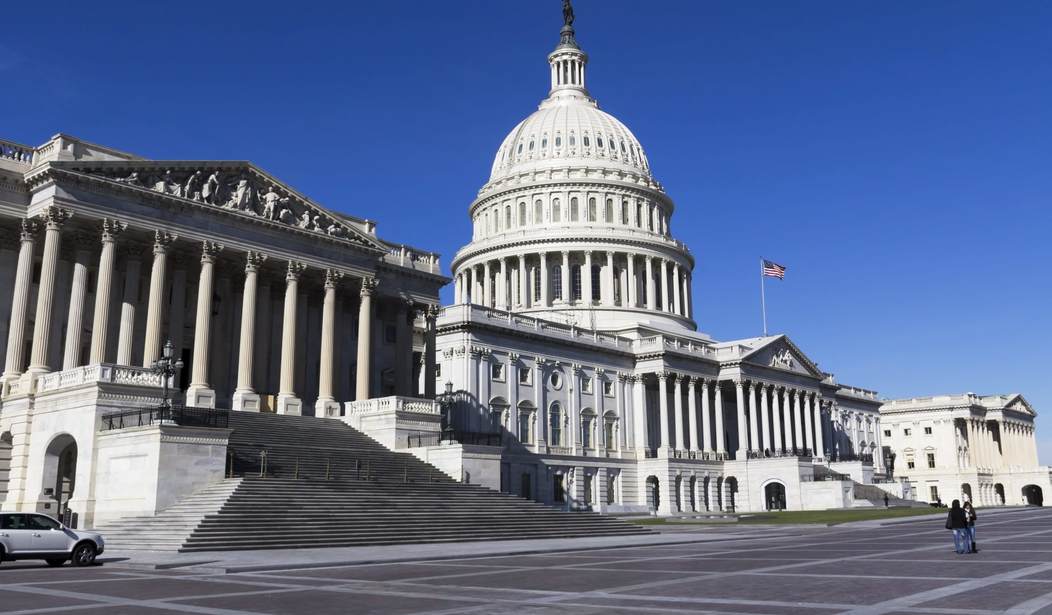Students of the Rush Limbaugh theory of bipartisanship know that espousing the concept of reaching across the aisle is a lot easier than actually trying to do it. I was thirty-seven and very impressionable in 1989 when I first heard Limbaugh on the radio. My political touchstone up till then had been a politician famous for the wisdom of his savvy bipartisanship, Ronald Reagan, as president and during his tenure as governor of my home state of California.
If I’ve understood correctly, the foundation of the Limbaugh theory of bipartisanship is that contemporary Democrats only give lip service to such outreach when they’re on the ropes. When they gain control of any or all of the branches of government, it’s a cold day in hell before they are willing to compromise.
I don’t think it will come as a newsflash to say that Limbaugh is probably one of the radio “loudmouths” that John McCain was referring to after the Arizona senator’s no vote scuttled skinny repeal.
But is McCain’s call for bipartisan cooperation even possible now? Or is such cooperation irrevocably out of reach, an old warrior’s memory of a bygone era when Reagan and five-time Democrat Speaker of the House Tip O’Neill brokered deals that got the wheels of government turning?
If you buy into Limbaugh’s dictum, the answer, sadly, is the latter.
One glaring reason bipartisanship won’t work is due to the Democrats’ unreasonable position on immigration. If the Democrat left will not compromise on proposals like Kate’s Law, or agree to nuance their position on sanctuary cities’ cooperation with ICE, there can be no quarter given to them.
By encouraging an open borders nation they seek to turn red states purple, creating a reliably Democrat plurality of the electorate and ensuring an impregnable lock on power. Given their entrenched position, what bipartisanship looks like under that scenario for a sovereign border or the continued existence of the Republican Party nobody has yet successfully articulated.
Similarly with refugee resettlement from war-torn and terror-prone Muslim countries. When citizens of the United States see what has happened in Germany under the cataclysmic reign of Angela Merkel, and factor that if given the chance Hillary Clinton—with the full support of her party—might have precipitated just such a disaster here, it becomes obvious that bipartisan diplomacy has a snowball’s chance in hell.
The list goes on.
The recent healthcare debacle illustrates how the core premise of the debate erases any chance of meaningful cooperation between the major parties. The two poles of the disagreement, after factoring out variables like insurance company greed, entitlement fraud, trial lawyer-driven abuses etc. comes down to the following question: is healthcare a right, or is it a commodity, a product, a privilege that has to somehow be attuned to market realities and earned by the citizens of a republic?
Voters who elected Republicans in every election between 2010 and 2016 thought their representatives were going to move the healthcare debate into accordance with economic realities that if not addressed will bankrupt the Treasury. They looked forward to proposals focused on portability, savings accounts, concierge treatment plans and other options. With skinny repeal defeated and all hands back at the drawing board, Democrats now seem willing to tinker around the edges of a death spiral while abidingly in pursuit of the ultimate prize: government controlled healthcare.
The maxim that “once a government entitlement program becomes law it is virtually impossible to eliminate it” was on sorry display in the Senate last week, but given the disparate premises from which conservatives and progressives operate on the healthcare issue, many on the right are understandably skeptical about McCain’s call for bipartisanship, and Majority Leader Mitch McConnell’s readiness to hear what the Democrats have to offer.
There’s been a lot of loud-mouthing about how if the Republicans don’t get their act together, don’t do this or that, that the Democrats may fare better than anyone expects in the 2018 midterms.
I don’t buy that for a minute. Republicans will easily maintain control of both houses of Congress in 2018, and its only partially due to the fact that the electoral landscape disfavors Democrats this upcoming cycle.
The plain truth is that the Democratic Party has moved so far to the left on immigration, Islamic refugee resettlement, healthcare and pretty much everything else, that giving them a place at the Republican-owned table is simply not possible. That’s why bipartisan patriots like John McCain are an endangered species.
As enfeebled, chaotic, and fractured as the Republican Party often seems, America has seen the future envisioned by the Democrats, and voted accordingly. With a little help from a chaotic president who is nonetheless right on the issues, the GOP will remain in power.
What they do with that partisan power, if anything, is anyone’s guess.









Join the conversation as a VIP Member